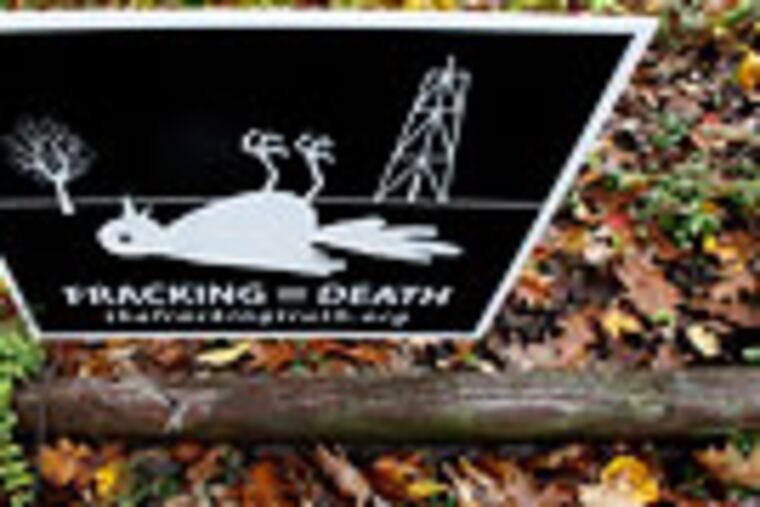Marcellus drillers say EPA wastewater proposal is moot
The U.S. Environmental Protection Agency said Thursday it wanted to develop national standards for the disposal of polluted wastewater from shale-gas drilling - a move that puzzled Pennsylvania officials, who said Marcellus Shale operators had already halted discharges.

The U.S. Environmental Protection Agency said Thursday it wanted to develop national standards for the disposal of polluted wastewater from shale-gas drilling - a move that puzzled Pennsylvania officials, who said Marcellus Shale operators had already halted discharges.
The EPA's proposal is aimed at federally regulated pretreatment facilities that process some wastewater from natural-gas drilling before passing it along to state-regulated municipal sewage systems for final processing and discharge. Neither treatment process is capable of purifying the briny, toxic drilling waste.
"No comprehensive set of national standards exists at this time for the disposal of wastewater discharged from natural-gas extraction activities, and over the coming months, EPA will begin the process of developing a proposed standard with the input of stakeholders," the agency said in a statement.
The new standards also would apply to wastewater produced by coal-bed methane drilling, the EPA said.
Environmentalists welcomed the announcement. But Michael L. Krancer, secretary of Pennsylvania's Department of Environmental Protection, said inadequately treated wastewater discharges had virtually ceased this year because of stricter state rules.
"I suppose what they're trying to do is to focus on what's on their regulatory bailiwick," he said. "We've already done some heavy lifting in what's in our regulatory bailiwick."
Kathryn Klaber, president of the Marcellus Shale Coalition, an industry trade group, said the EPA's announcement was "baffling."
"This is yet another Washington solution in search of a problem, as treated Marcellus water in Pennsylvania is no longer discharged into surface waters," Klaber said.
The new national standards are the latest regulatory response to the shale-gas boom, which accounts for an increasingly large amount of the nation's natural-gas production.
Shale-gas drilling relies on hydraulic fracturing, the high-pressure injection of water, sand, and chemicals to shatter deep rock formations. Anti-drilling activists, who have called for a ban, say fracking pollutes aquifers and streams.
In most states, oil and gas wastewater is sent to EPA-regulated wells and injected deep into the earth. But Pennsylvania's geology can't absorb the fluids, so the industry sent much of its wastewater to treatment plants that could not remove the salt and heavy metals it contained.
Last year, Pennsylvania officials approved new standards that require shale-gas wastewater to be treated to near-drinking-water standards before it can be discharged. The industry now recycles much of the wastewater to avoid costly treatment. What's leftover is sent to out-of-state injection wells.
On Thursday, the Sierra Club welcomed EPA's announcement and said the agency should take the opportunity to expand its inquiry and enact rules to track the amount and content of wastewater produced at each well.
"A closer look at the water used in the hydraulic-fracturing process allows for a better understanding of its effect on our communities," said Deb Nardone, director of the Sierra Club's Natural Gas Reform Campaign.